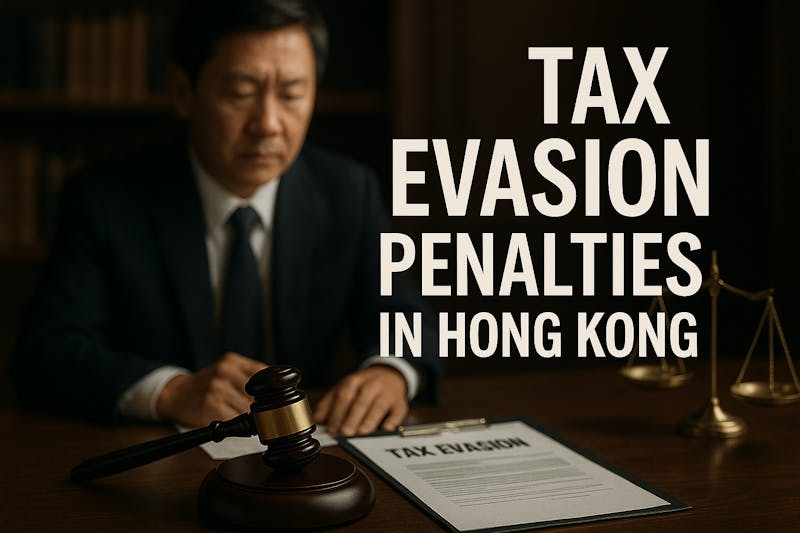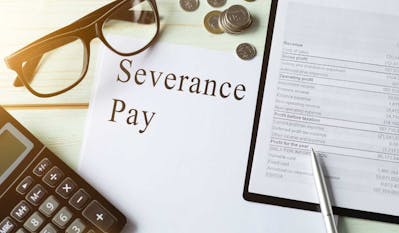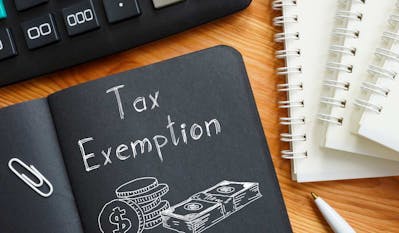Tax evasion is illegal. Tax avoidance is legal, but aggressive avoidance can still result in penalties.
The Inland Revenue Department (IRD) considers intent, underpaid tax amount, cooperation, and history when deciding on penalties.
Penalties may include fines, public naming, or imprisonment.
Keeping clear records and following correct procedures helps avoid unintentional mistakes.
Hong Kong is known for having low taxes and a simple tax system, which makes it a popular place for business owners, investors, and wealthy people. This helps the economy, but it also creates a problem: some people engage in illegal tax evasion.
Since getting caught not paying taxes may result in financial penalties or criminal charges, it’s important for both people and businesses to understand what tax evasion is and how to follow the rules.
In this article, we’ll explain what tax evasion means, how it's different from tax avoidance, what can happen if you break the tax rules, and how to stay on the right side of the law.
A Quick Look at Hong Kong’s Tax System
Hong Kong uses a territorial tax system, meaning only income earned in Hong Kong is subject to tax. The main taxes are:
- Profits Tax – For businesses operating in Hong Kong
- Salaries Tax – For income from employment in Hong Kong
- Property Tax – For rental income from property located in Hong Kong
- Stamp Duty – For transactions involving property or shares
Tax Rates in Hong Kong
Hong Kong operates under the Inland Revenue Ordinance (Cap. 112), which gives the Inland Revenue Department (IRD) the authority to assess and collect taxes. The IRD enforces compliance through clear guidelines and rigorous oversight to ensure that all taxpayers fulfill their obligations effectively and lawfully.
There are two main tax rate systems for businesses, depending on the structure and income level of the business:
Profits Tax (Cap. 112, Section 14)
Applies to profits from trade, profession, or business carried out in Hong Kong (excluding capital gains).
For incorporated businesses (like limited companies):
- If you're under the single-tier system, the tax rate is 16.5%.
- Under the two-tier system, you pay 8.25% on your first HKD $2,000,000 in profits and 16.5% on anything above that.
Note: Only one entity within a group of connected companies can elect for the two-tier rates in a given tax year. This election must be made in the Profits Tax Return and is irrevocable for that year
In addition, incorporated businesses are subject to provisional profits tax, based on prior-year profits, which is later adjusted when actual profits are assessed.
For unincorporated businesses (like sole proprietorships or partnerships):
- The single-tier rate is 15%.
- With the two-tier system, you’re taxed 7.5% on the first HKD $2,000,000 in profits, and 15% on the rest.
Property Tax (Cap. 112, Sections 5 & 5B)
Applies to owners of land or buildings in Hong Kong.
Charged at 15% on the net assessable value, which includes:
- Gross rental income
- Less 20% standard deduction for repairs
- Less rates (if paid by the owner)
Companies using the property for their own trade can apply for an exemption under Section 5(2) if they qualify under Section 25.
Salaries Tax (Cap. 112, Section 8)
Under Section 8, salaries tax applies to:
- Wages, commissions, bonuses, and employer-provided benefits.
- Tax is based on net chargeable income after deductions and allowances.
- Tax is charged at progressive rates up to a maximum of 15% of net chargeable income or at a flat 15%, whichever is lower.
What Is Tax Evasion?
Tax evasion is when someone breaks the law by trying to avoid paying taxes. This can include things like not reporting all of their income, lying about deductions, hiding money or assets, or using bank accounts in other countries to keep money secret.
Some examples of tax evasion for businesses in Hong Kong include:
- Giving the IRD the wrong income amount for the year
- Making up fake business expenses to lower profits
- Not telling the IRD when your business owes tax
- Leaving out details about employee pay
- Making business costs look higher than they are
Tax Avoidance vs. Tax Evasion
Tax avoidance is using legal ways to reduce tax. This includes claiming deductions and planning income. Tax evasion, on the other hand, is illegal.
Examples of Tax Avoidance
- Claiming allowable deductions
- Timing income or expenses
Examples of Tax Evasion
- Hiding income
- Faking transactions
- Giving false information
Businesses are often more closely monitored than employees due to their control over finances.
What Happens If Someone Tries to Avoid Taxes in Hong Kong?
In Hong Kong, the Inland Revenue Department (IRD) takes tax avoidance seriously and has different ways to deal with it. Depending on the situation, someone could face civil fines, extra tax bills, or even criminal charges.
Civil Penalties
- Fines: Up to HK$100,000 or more, depending on the case.
- Recovery: IRD can demand full payment of unpaid tax plus interest and penalties.
The Departmental Interpretation and Practice Notes No. 11 (DIPN 11) states that penalties may be reduced if the taxpayer cooperates.
Criminal Penalties
In more serious cases involving deliberate fraud or concealment, criminal charges can be filed under Cap. 112. Penalties include:
- Imprisonment: Up to 3 years upon conviction
- Fines: HK$50,000 per offense, plus up to three times the amount of tax evaded
Public Naming
The IRD also has the right to publish the names of those convicted of tax offences. These names are printed in the Hong Kong Government Gazette, which is a public record released weekly. They also appear on the IRD’s website.
Once a name is published, it becomes part of the public record; anyone can look it up.
When Can Someone Get in Trouble for Tax Evasion?
Honest mistakes are not treated the same as deliberate evasion. The IRD usually issues assessments or fines for accidental errors.
Common errors include:
- Forgetting to report income
- Claiming wrong deductions
- Failing to inform IRD about tax owed
But when someone tries to intentionally mislead the tax authorities, the consequences are much more serious.
Here’s a real-life example:
Two company directors were found guilty of helping a business avoid paying taxes. They claimed the company made a profit of only HKD $253,425. But they added fake expenses, including “computer and internet” costs of $99,700 and “salaries and commissions” of $99,300. This lowered the company’s reported profits by nearly $200,000. Because of this, the company avoided paying $34,826 in taxes. After an investigation, both directors were convicted and sent to jail for six weeks.
What Affects the Penalty for Tax Avoidance in Hong Kong?
When someone is suspected of avoiding taxes in Hong Kong, the Inland Revenue Department (IRD) doesn’t just hand out penalties randomly. They look at several important factors before deciding how serious the punishment should be.
- Whether the act was intentional
- The amount of tax underpaid
- The taxpayer’s cooperation
- Past compliance history
The IRD may also investigate if:
- A full tax year is skipped
- There are major or unusual accounting errors
- Schemes or loopholes are used to reduce tax
Why Professional Help Matters
Without proper guidance, taxpayers can:
- File incorrect tax returns
- Miss valid deductions
- Use risky tax schemes
Hiring accounting or tax professionals helps ensure compliance and avoids penalties.
Ways to Avoid Tax Trouble in Hong Kong
Follow these steps to stay compliant:
- Review your accountant’s work regularly.
- Report employee payments truthfully.
- Encourage staff to double-check their tax data.
- Inform the IRD if there’s a refund or mistake.
- File all tax returns on time.
- Keep clear records of income and expenses.
- Keep all tax documents for at least 7 years.
- Stay updated on tax law changes.
- Set up internal checks to detect errors.
- Be open with the IRD if issues arise.
Conclusion
While Hong Kong offers a business-friendly tax system, the consequences of tax evasion can be severe. Knowing the difference between tax planning and illegal actions is essential.
Keep accurate records, submit returns on time, and get professional advice when needed. Doing so helps avoid penalties and protects your business reputation in the long run.
Need help staying compliant with Hong Kong’s tax laws?
Air Corporate offers professional support for businesses looking to stay on the right side of the Inland Revenue Department. From tax filing to audit coordination, our team helps you avoid costly mistakes and stay penalty-free.






